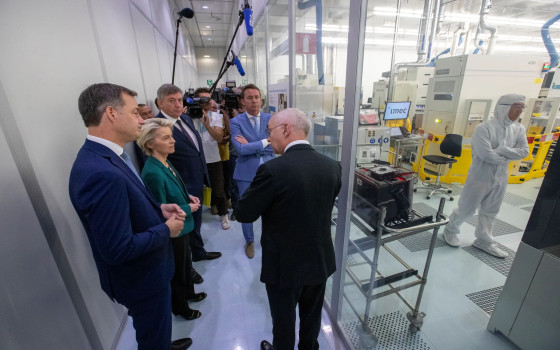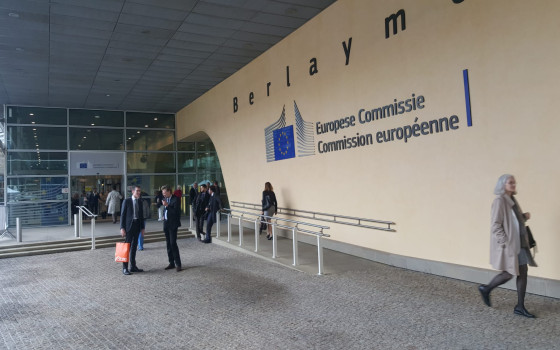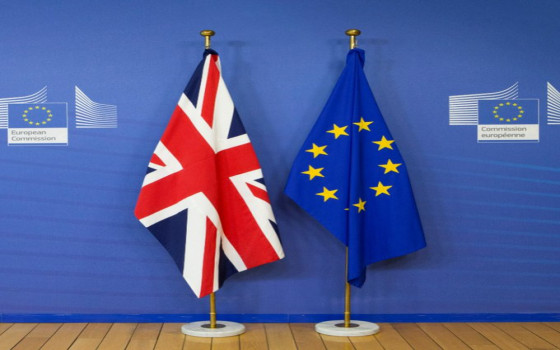
Transforming education - an international plan to achieve equality and keep pace with developments

- Europe and Arabs
- Saturday , 5 August 2023 12:8 PM GMT
New York: Europe and the Arabs
The Secretary-General of the United Nations launched a new policy brief that addresses the current crisis in education, and provides a vision and a set of guiding actions for countries and the international community in order to achieve a transformation in education. According to what was stated in the United Nations news bulletin, a copy of which we received on Saturday morning
Leonardo Garnier, Special Adviser to the United Nations Secretary-General on Transforming Education, said that the policy brief launched today includes a set of proposals aimed at building true and inclusive education societies, as part of the follow-up to the Education Transformation Summit that took place last year and in preparation for the Summit on the Future.
The policy brief indicated that education at the present time is no longer adequate, as it is beset by two main crises, one related to equity, and another related to keeping pace with developments.
“While millions around the world remain out of school, many of those who receive formal education do not even have access to the basics. Existing education systems do not prepare them to face the complex challenges of the future,” Garnier said - via video link at a press briefing held on Friday to present the policy brief. ".
He added that the current investment in education was not only insufficient, but also unfair and highly ineffective.
The policy brief noted that education systems can in some cases work against common goals by perpetuating stereotypes and harmful practices that lead to inequality, division and environmental degradation.
Achieving equality and avoiding stagnation
The Special Adviser to the Secretary-General of the United Nations reviewed the proposed principles and procedures included in the policy brief.
Among these proposals is moving away from the rigid traditional vision of education and adopting effective, adaptive and learner-centered lifelong learning systems that are suitable for building real learning societies.
The policy brief also recommended ensuring equality and inclusion in education by transforming schools and all learning environments into more inclusive, safe, healthy and stimulating places, developing curricula and supporting equality and inclusion among all groups, especially marginalized and excluded groups, including rural residents, low-income families, migrants, refugees, displaced persons, and people who suffer discrimination on the basis of disability, race, religion, gender, sexual orientation or gender identity.
The third of the proposals presented by the policy brief is to make the curricula and teaching methodologies compatible with the requirements of the present and the future. This calls for prioritizing and extending core learning to include creative, critical and scientific thinking, digital literacy and social emotional skills.
With regard to the requirements of the present and the future, the policy brief called for a special focus on education for sustainable development, and the promotion of a culture of civic responsibility, peace and respect for human diversity.
Transforming the role of teachers
The Special Adviser to the Secretary-General said that the fourth proposal included in the policy brief is to transform the role of teachers as innovative mentors and facilitators of learning, so that their approach shifts from a negative approach to a positive one, and from a unilateral approach to a cooperative one.
Garnier added that there is also a need to "strengthen the capacity to make effective use of digital tools for evidence-based and more independent learning".
The policy brief also noted the importance of ensuring effective compatibility between digital resources for teaching and learning, content and teaching methodologies in general, and ensuring that they address negative phenomena on the Internet.
The policy brief also suggested greater investment in education, and that this investment be more equitable and efficient.
Garnier emphasized that most countries must increase public income in order to create fiscal space to be able to allocate at least 6 percent of their GDP and 20 percent of total government spending to education, and to increase per capita public investment in education.
"These resources must be equitably allocated so that they reach the most vulnerable and used efficiently to ensure effective and meaningful educational outcomes," he added.
International cooperation
As for the seventh proposal to transform education, according to the policy brief, it is to accelerate the intensification of international cooperation in order to achieve Goal 4 of the Sustainable Development Goals on quality learning and transform education.
The Special Adviser to the Secretary-General on Transforming Education stated that the international community must facilitate the ability of developing countries to increase investment in education by answering the Secretary-General's call to incentivize the Sustainable Development Goals, reform the international financial architecture, accelerate efforts to strengthen global tax cooperation, and deal with the crisis Debts.
Garnier said the policy brief stresses that transforming education to create an inclusive learning society "is critical to building a more just and sustainable future. This should be our global responsibility."
Transition to a shift culture
UNESCO Assistant Director-General Stefania Giannini also speaks at the video briefing
She said transforming education is about "moving from a culture of reforming education systems to a culture of transformation."
She added that it must result in a shift to different education systems than they are today, noting the need to move to a different model for financing education, achieving better gender equality, and ensuring the right to education in times of crisis and conflict.
She noted that the United Nations Development Summit next September will be an important moment to present the concrete steps that have been taken in this regard.
The UN official confirmed that this policy brief guides and directs the education transformation plan as it is at the center of our collective efforts, and is also related to the development of our common system.
It is noteworthy that the Secretary-General issues a series of policy briefs with the aim of providing more details on Some of the proposals contained in Our Common Plan, a plan issued by the Secretary-General in 2012 that reflects his vision for the future of international cooperation.












No Comments Found